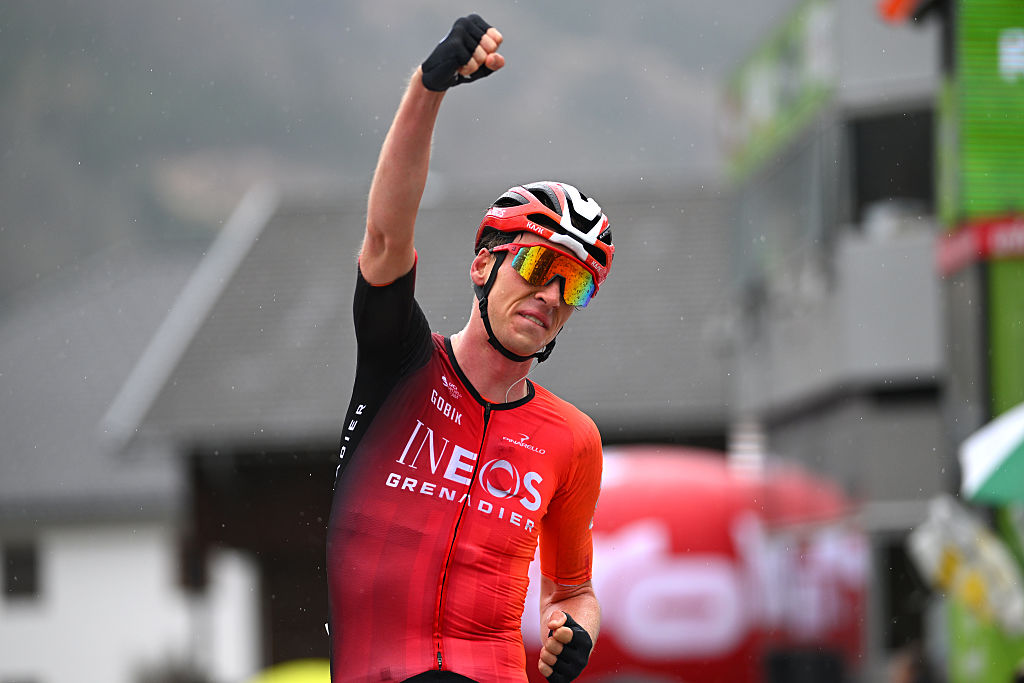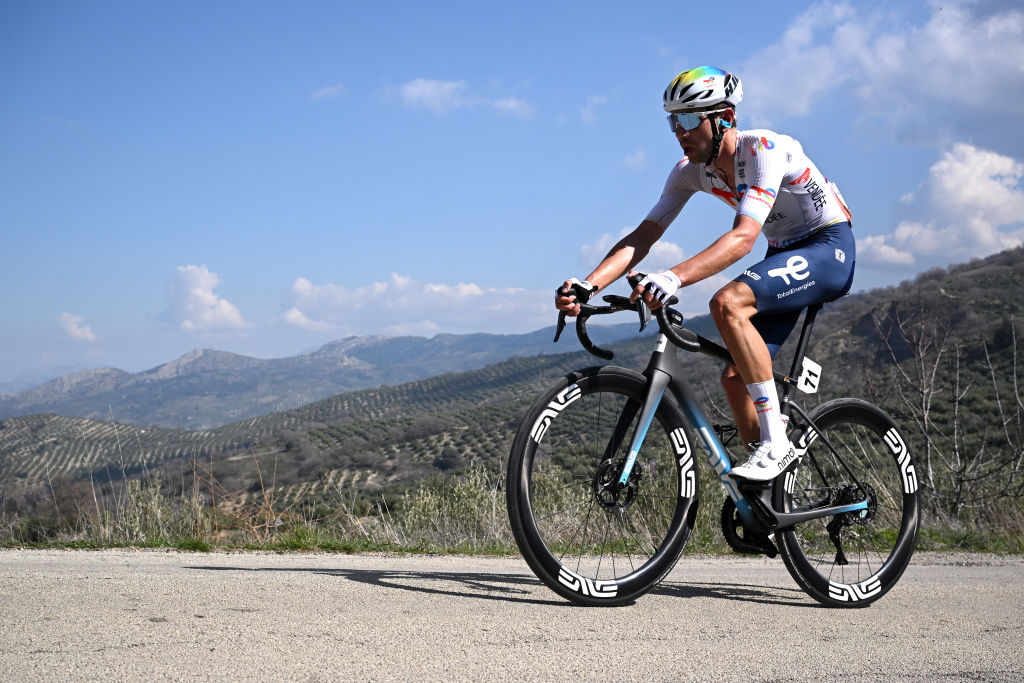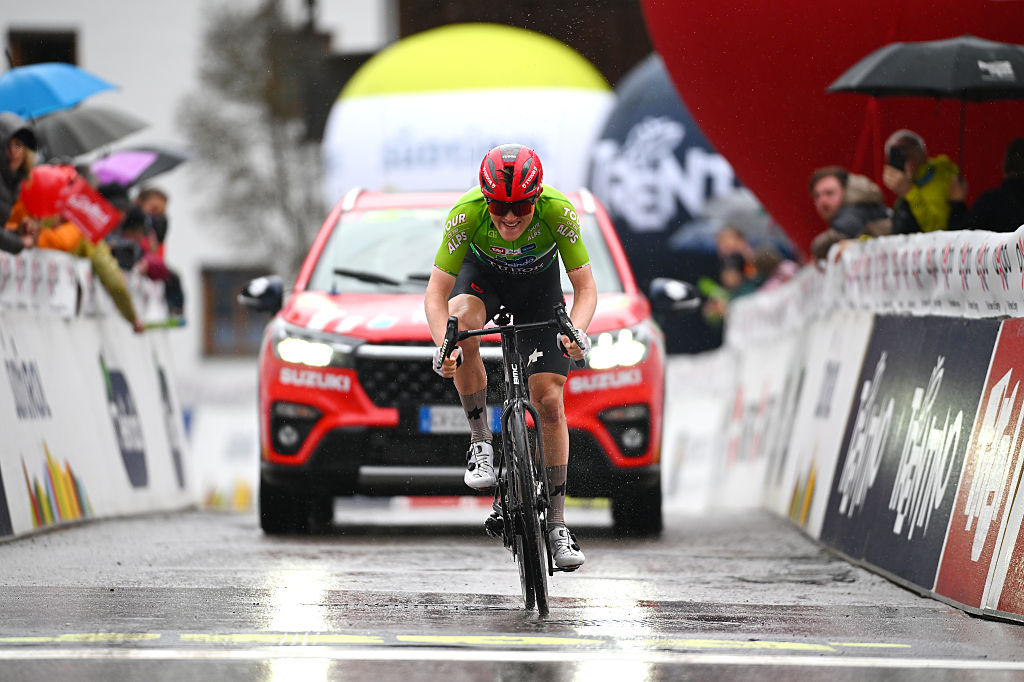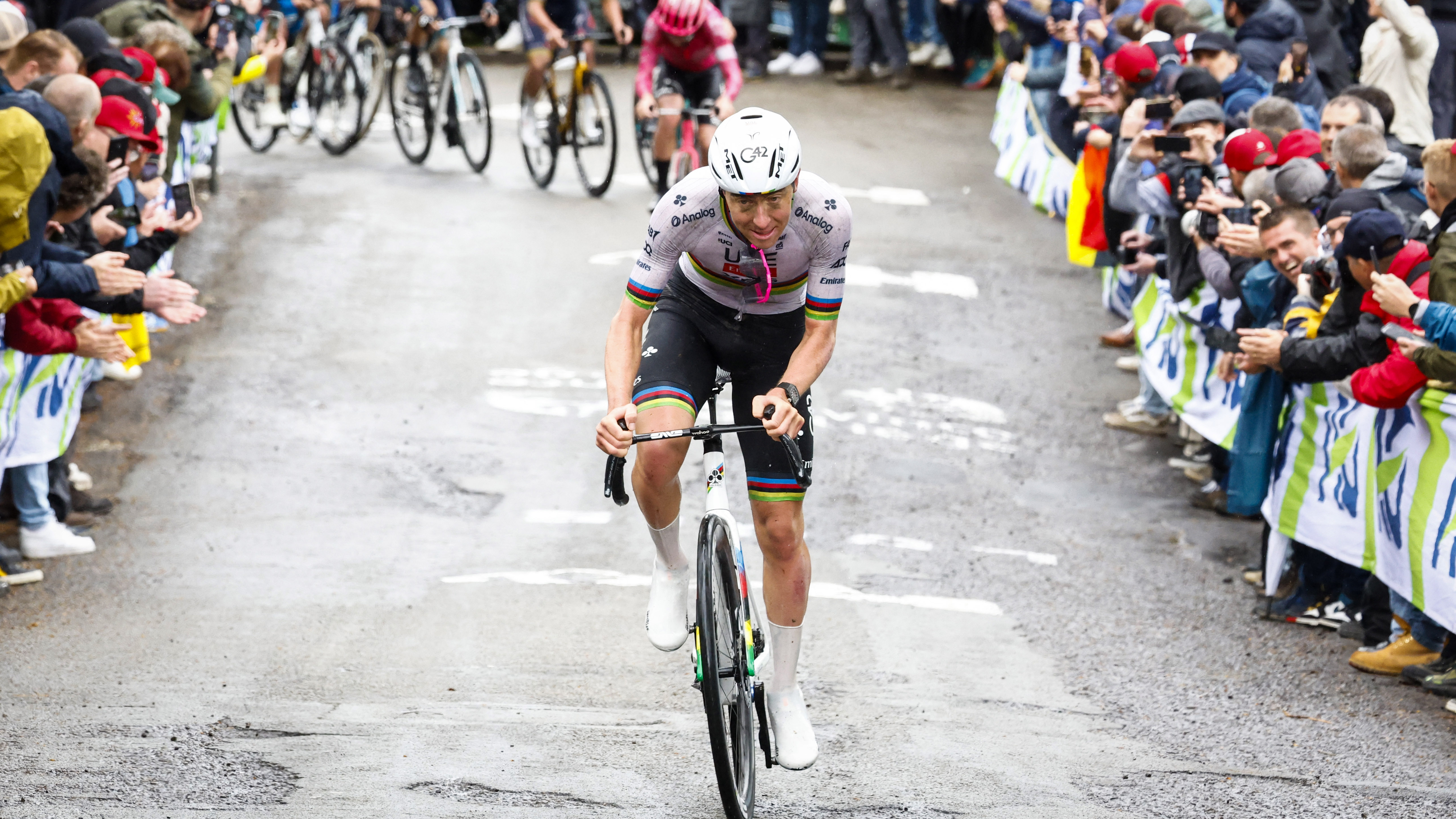Moncoutié delivers solo punch ahead of Astana show
France's David Moncoutié of Team Cofidis launched an early escape bid that garnered him victory in...
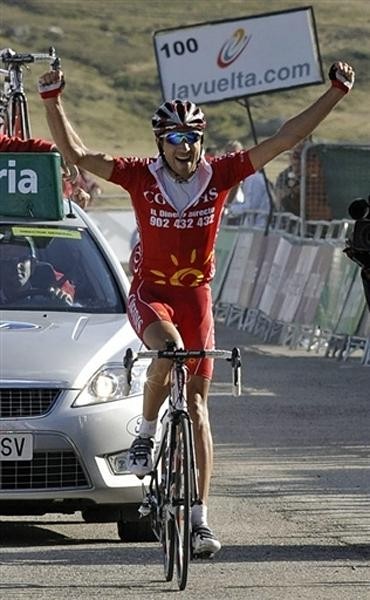
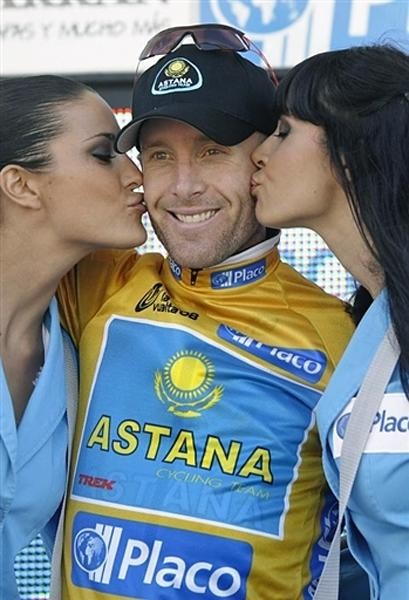

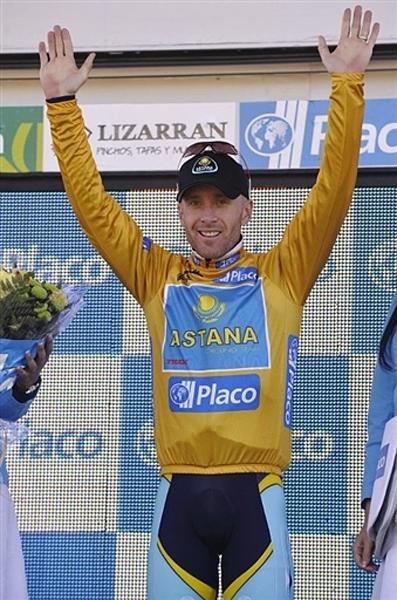

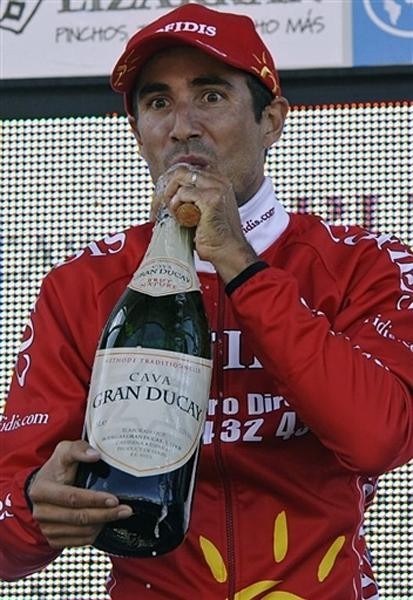
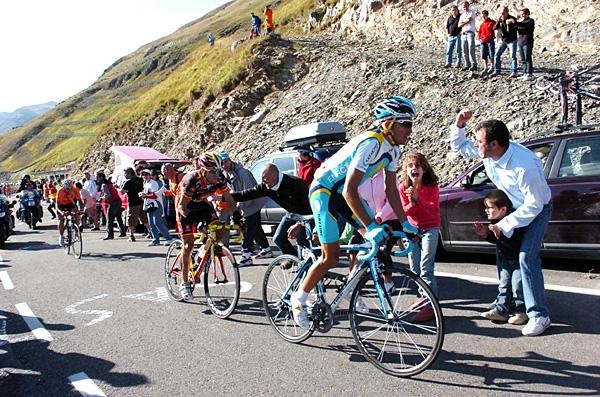
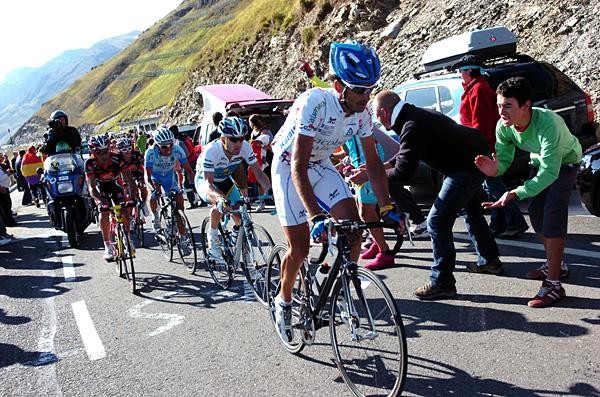
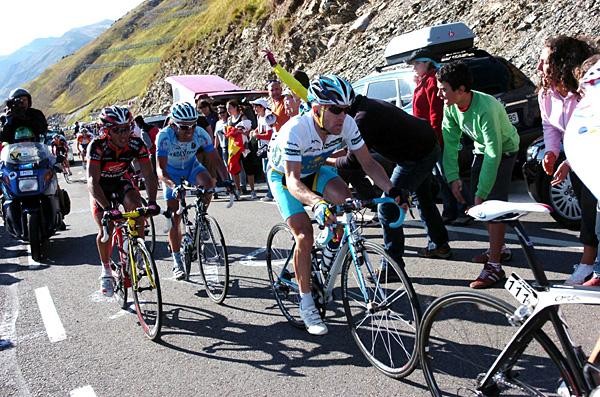
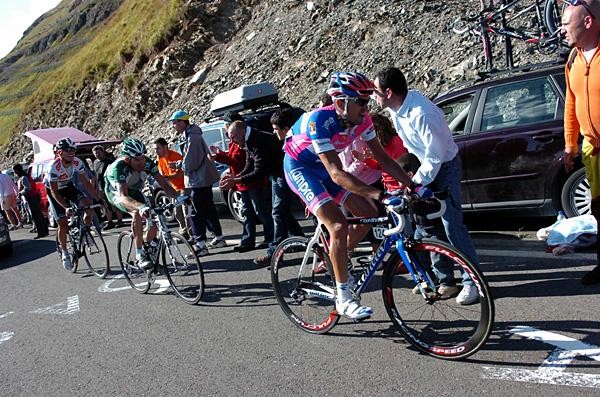
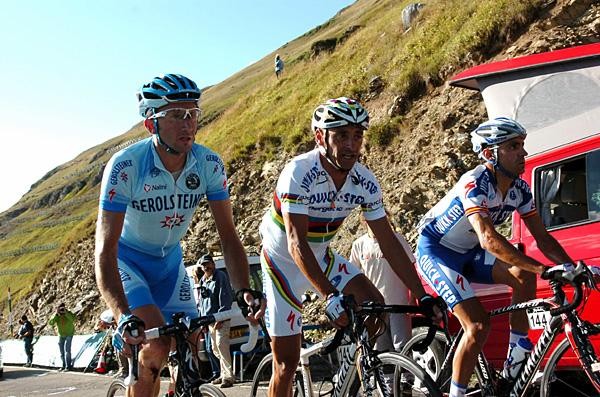
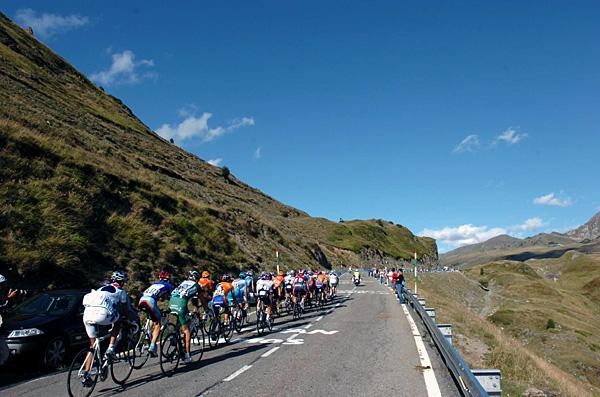
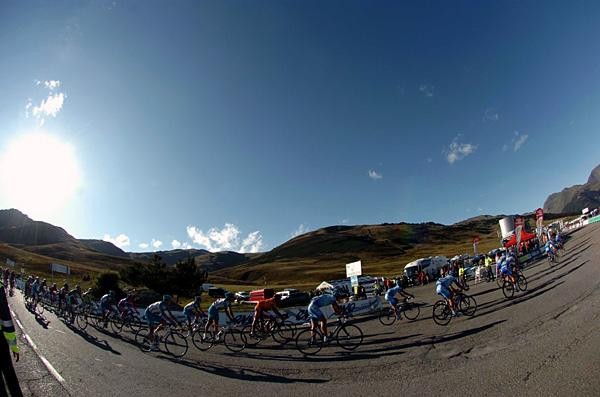
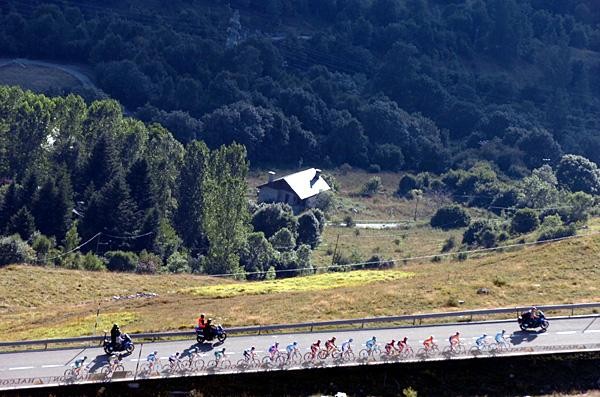
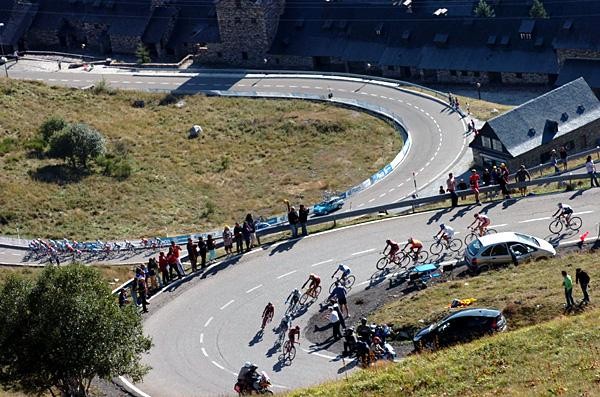
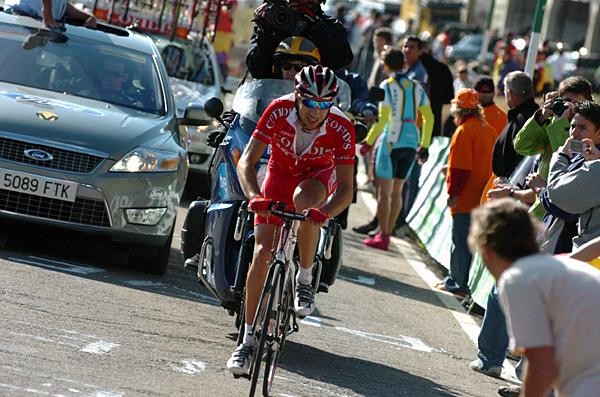
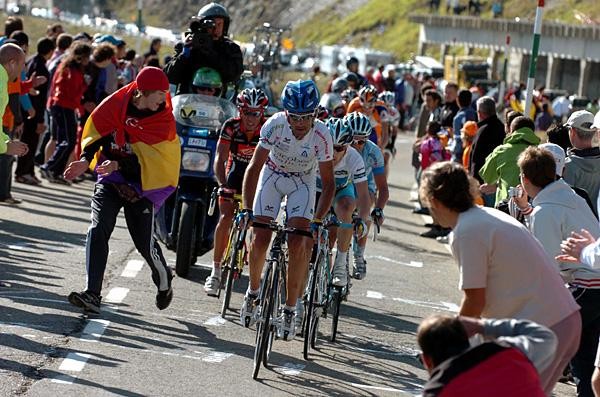
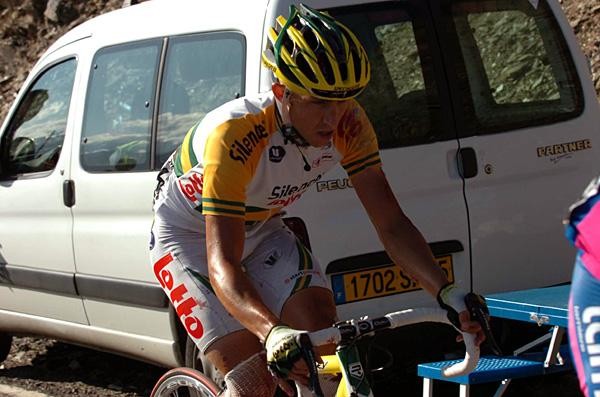
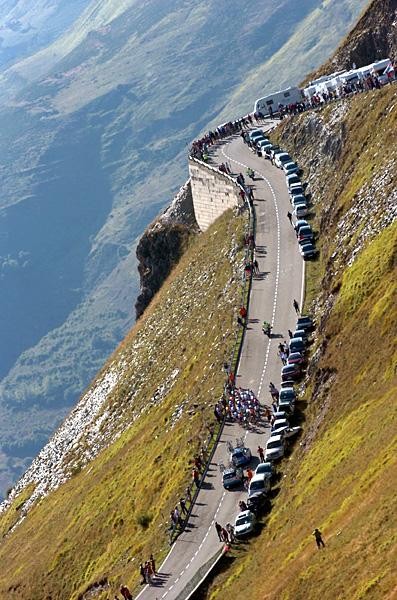
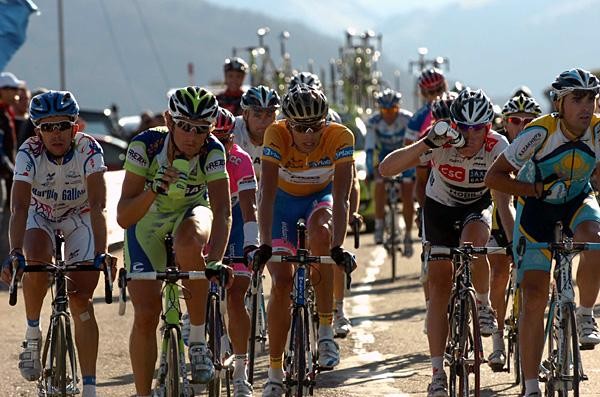
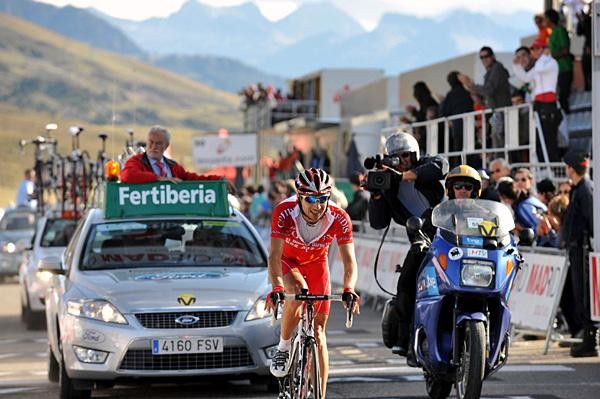
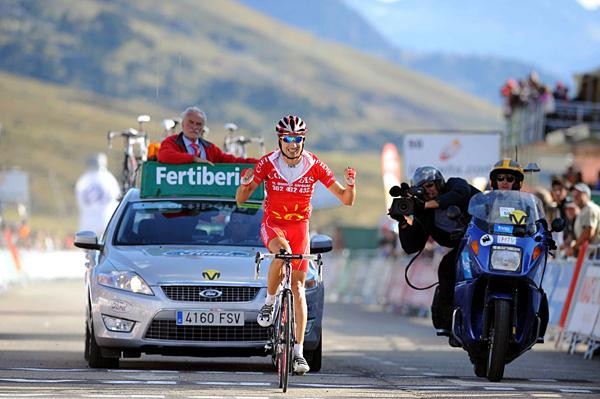
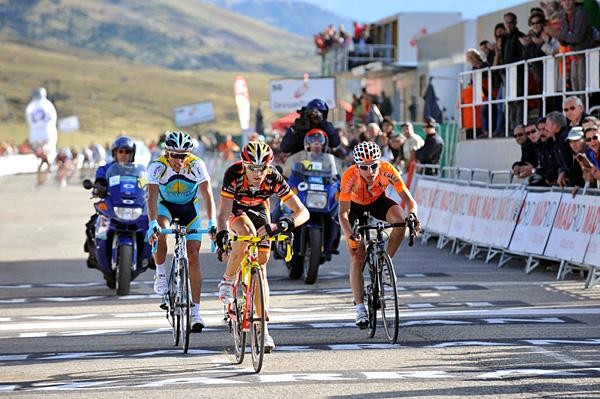
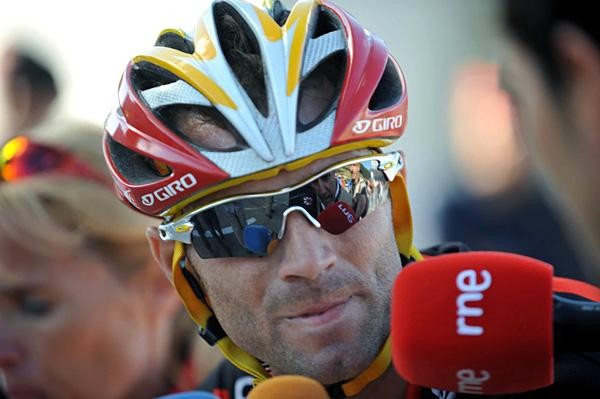
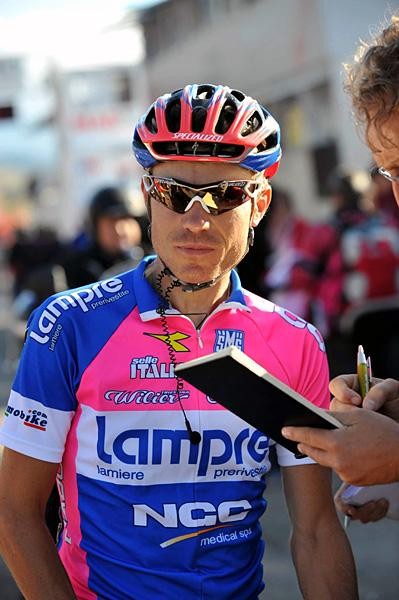
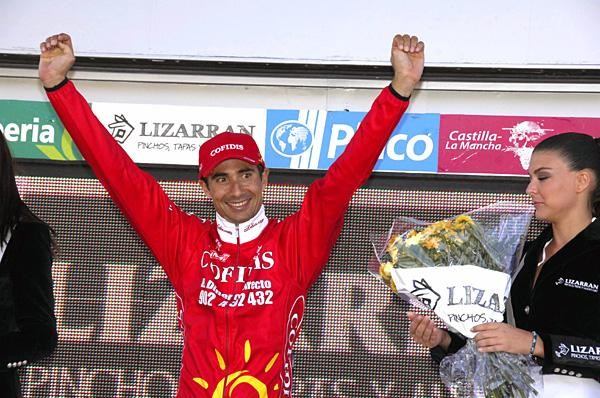
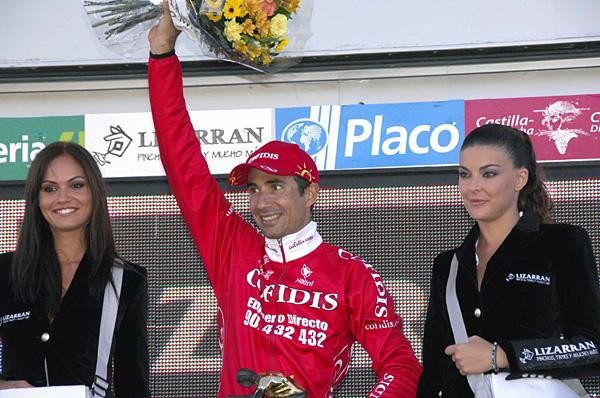
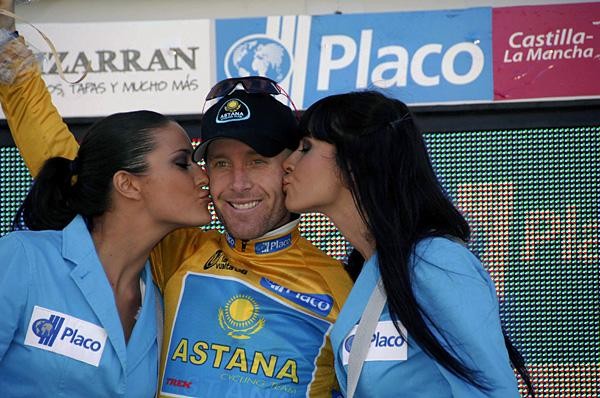
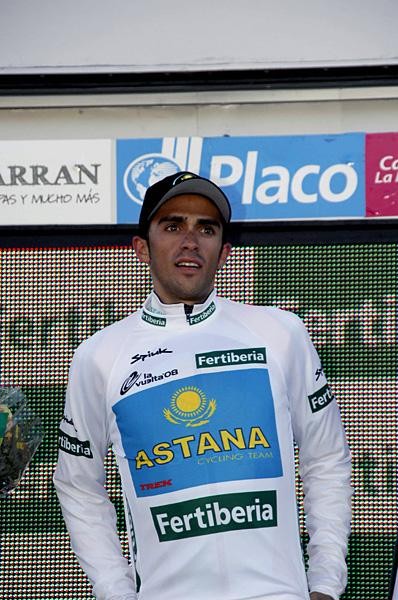
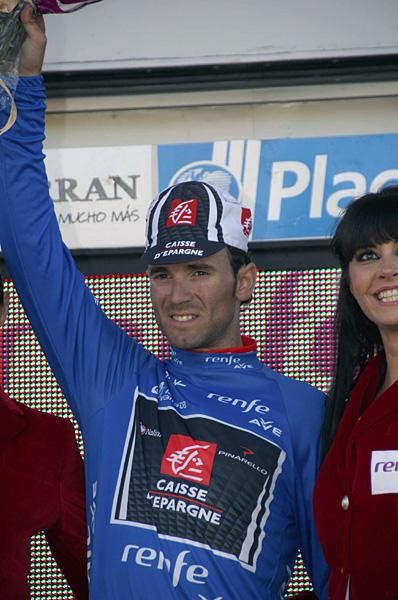
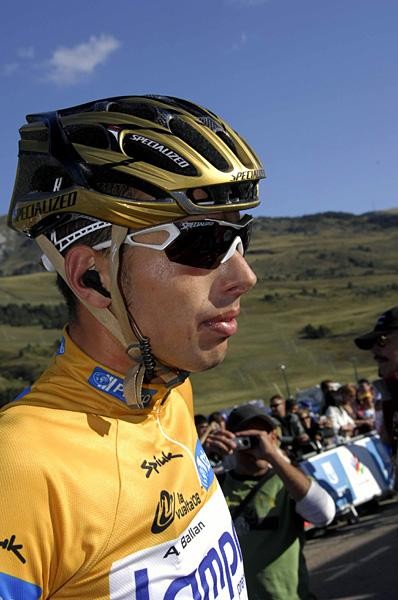
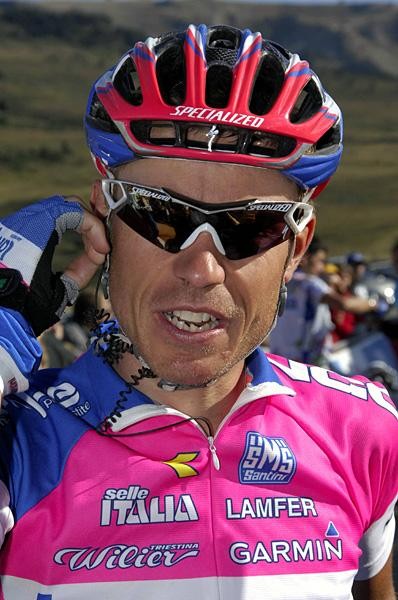
USA's Leipheimer back in overall lead
France's David Moncoutié of Team Cofidis launched an early escape bid that garnered him victory in the eighth stage of the Vuelta a España – 151 kilometres from Andorra to Pla de Beret. It was his first win in three years. While the 33 year-old enjoyed solo success, Spaniard Alberto Contador of Team Astana led the classification battle behind. His moves dropped favourite Carlos Sastre of Team CSC-Saxo Bank by five seconds and helped team-mate Levi Leipheimer move back into the race lead.
America's Leipheimer, 34, holds 21 seconds over Contador and 49 seconds over Spaniard Alejandro Valverde of Team Caisse d'Epargne.
"I had some difficult moments, but I have a lot of experience behind me and that helped. I am taking the Vuelta day by day, looking to Asturias," said Sastre, winner of the Tour de France.
"I didn't feel bad all day, but at the beginning of the last climb, after that letdown to La Bonaigua, I started to cramp and had little choice but to go at my own rhythm," said Sastre with an eye toward how he might recover during tomorrow's stage.
Moncoutié looked to be within reach of taking his first win since 2005's Tour de France stage at the base of Pla de Beret. He had dropped Sébastien Joly (Française des Jeux), who was the last remaining escape companion of the original group that contained Nikita Eskov (Tinkoff Credit Systems), Christophe Kern (Crédit Agricole) and Juan Manuel Gárate (Quick Step).
Astana on the move
Astana put the polish on a day of solid pace-making for the 6.2-kilometre climb. José Luis Rubiera and Andreas Klöden throttled the elite group along. Before three kilometres to the summit and six kilometres to the line, Contador's team-mates had Sastre shooting out the back of the thinned peloton.
Sastre had little support. He joined with Vasil Kiryienka (Tinkoff Credit Systems) and John Gadret (AG2R La Mondiale), and the trio started to claw its way back. Contador got word of Sastre's return and blasted off with Valverde and Spaniard Igor Antón (Euskaltel-Euskadi) at five kilometres to race. He attacked again at three kilometres, but Valverde and Antón held tight.
"The only thing I regret is that again the time differences are so small," said Contador. "They could have been more substantial if Alejandro (Valverde) had cooperated a bit more with Igor Antón and me. I don't understand why he didn't do that. Also for him it was in his interest to gain more time on Carlos Sastre."
Nonetheless, Contador continues to bide his time patiently. "The Pyrenees provoked no decision (in the overall). As I already thought at the start of this race, the Asturian mountains and the time trial in the last weekend will decide who will win this Tour of Spain."
Valverde bounces back
Valverde took the sprint for second, 34 seconds behind the winner, and the four seconds bonus seconds on offer. He put in a great effort 24 hours after yesterday's stage, where he looked to be writing himself out contention for the Vuelta overall.
"I completely recovered from the bad day I had yesterday," said Valverde. "My legs hurt a little bit while climbing the first climb of the day but I soon felt very good. I ate correctly, and the day was totally different.
"In Pla de Beret, when I was with Contador chasing behind the French rider, I was almost not able to take my turn because we were riding at 35 kph and Contador, who is the best climber in the world, took me to the limit."
"It is true that I am still very well placed in the general classification but the mountains in Asturias are still to come and that will be another story so that I will keep on going with my plan which is to see what happens day by day," concluded Valverde.
Antón, eighth in last year's Vuelta, marked himself as Euskaltel's captain for the 2008 edition with an impressive tough ride. He finished fourth for the day, five seconds ahead of the group of the new race leader, Leipheimer.
Leipheimer, four days after his stage win in Chided Real, moved back into the race lead as a result of powerful Astana riding. Similar to the Giro d'Italia, he should act as a wild card for the team.
When asked if his team gave the jersey away to Sylvain Chavanal and Alessandro Ballan (Team Lampre) earlier in the race, Leipheimer said, "No, I think that Chavanel and Ballan both earned it. We didn't contest Chavanel, but realistically I can't beat him in the sprint. He would get the jersey, no matter what, but to make it easy we collaborated a little bit with him. It was good for us to save the team. Ballan on the other hand was really very strong yesterday. They both earned their jersey."
Leipheimer affirmed that he is still working for his team-mate Contador. "I just have to follow everyone right now as I am ahead in the classification, but in the end, Alberto will be the captain. The final climb yesterday and the final climb today were not so hard. They are not steep and that big time differences can't be made. Although I've never seen the Angliru, I am convinced that the mountains in Asturias are another story…
"It's a long way to go," said Leipheimer. "Now we have the leader's jersey and everybody will look to us to control. There's a lot of work to do."
He took the overall lead from Ballan, who may have found the weather better in stage eight, despite the added pressure in the race overall. After a yesterday's stage of longevity and inclement temperatures, riders were ready for a different stage today. The day took in four mountain passes, with the finish on the Pla de Beret, but it was shorter than yesterday – at 151 kilometres.
Lampre kept control for Ballan of a wily start out of Andorra. Riders were edging for freedom to form part of what could be the escape of the day. None other than former race leader, France's Sylvain Chavanel (Cofidis), even made a move. A solid escape did not materialise until Kern, Eskov, Joly, Gárate and Moncoutié moved clear at kilometre 38.
The five held 2'23" over the 25-kilometre Coll del Cantó. The gap stayed more or less the same over the top of Alto de Enviny – 27.7 kilometres later. The five had 2'52". The gap nearly doubled – 5'22" – which forced Contador's Astana team to take responsibility of the pace-making with Lampre.
The five leaders kept working, but behind the peloton was falling apart before the climb of Puerto de La Bonaigua. Valerio Agnoli (Liquigas), Bingen Fernández (Cofidis), Matti Breschel (CSC-Saxo Bank) and Matthew Lloyd (Silence-Lotto) all crashed at kilometre 113. Agnoli crashed again as he chased back.
Ballan's gold faded fast on the 19.7-kilometre climb. He drifted back and so did his Lampre's team-mates. Sastre's CSC and Contador's Astana team took over the muscle work.
Moncoutié hit out on his own at kilometre 129.Joly gave chase and Gárate faded. Over the top of the Puerto de La Bonaigua, Moncoutié held around 20 seconds on Joly, Eskov, 55 seconds to Garate and Kern and 1'45" on the main chase group. Ballan's golden days were over; he trailed nineteen minutes back, although still front of the gruppetto.
Stage 9 - September 8: Viella - Sabiñánigo, 200.8km
It will be the third straight day in the high mountains. The 200.8 kilometres feature four categorised climbs. The first one, the Alto del Tunel de Vielha, is only a category three mountain, but the road tilts upwards right from the start. That is never welcomed warm-up for the riders. Unless of course you plan to go on the attack from the gun and the necessary warm-up has been done.
There will not be many flat metres in this stage as the riders constantly ascend or descend. In the middle part of the stage, the category two Coll de la Espina and el Puerto de la Forada await the riders. The end of the descent of the Forada brings the peloton immediately to the start of the start of the Puerto del Serrablo, a category one mountain.
At the top it is still not over for the racers. A gradual descend of some 50 kilometres may allow some dropped riders to get back into action. Only the last dozen kilometres are somewhat flat to the finish in Sabiñánigo.
At 780 metres in altitude, Sabiñánigo is known for its extended skiing areas in the winter. It hasn't been used as a finish town since 209.58. The start town of Vielha hosts a stage start for the third time in the Vuelta history.
Get The Leadout Newsletter
The latest race content, interviews, features, reviews and expert buying guides, direct to your inbox!
Latest on Cyclingnews
-
Tour of the Alps: Thymen Arensman wins from 80km solo attack to snatch race lead from Michael Storer
Ineos Grenadiers rider blows up GC battle -
Vuelta Asturias: Steff Cras tops Marc Soler to take opening stage
TotalEnergies rider emerges as first race leader -
Exhausted Michael Storer cedes Tour of the Alps lead despite brave, defensive ride
Australian came close to holding onto the green jersey but faded on the final climb -
Cobbles vs climbs: The performance factors behind a Classics specialist
What separates a Cobbled Classics contender from an Ardennes challenger? Cyclingnews dives into the performance aspects behind the one-day specialists
